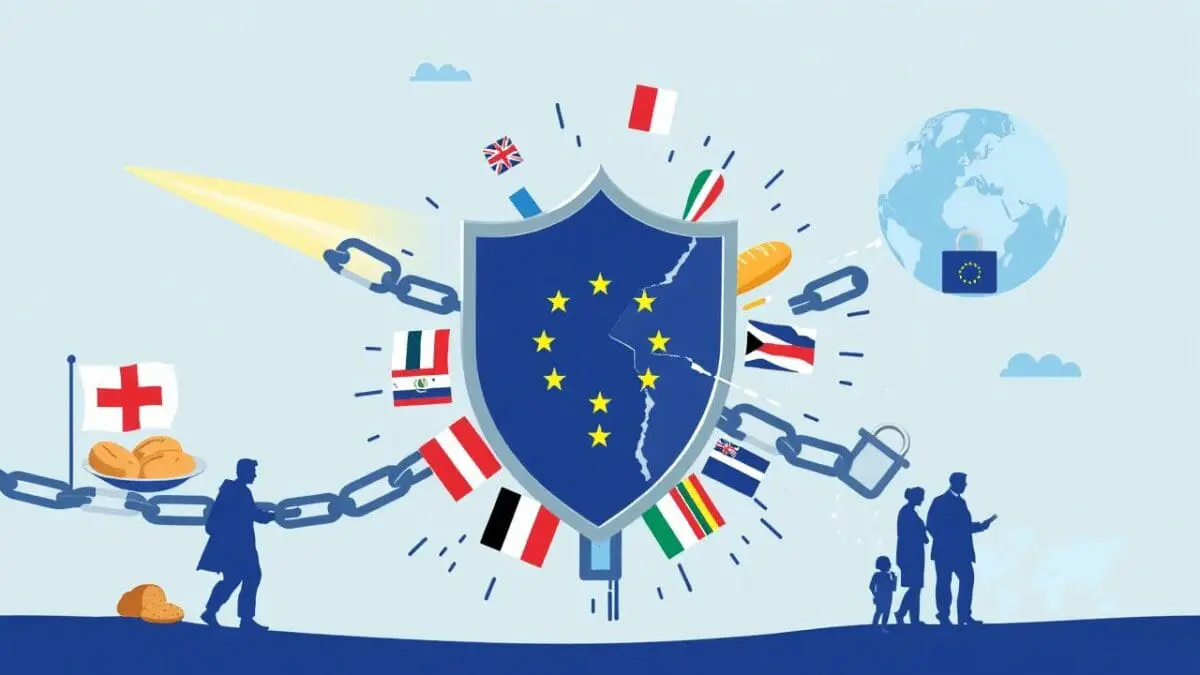BRUSSELS, The European Union has taken a significant step to strengthen international cooperation against terrorist groups, with 11 partner countries committing to align their policies with EU sanctions targeting ISIL (Da’esh) and Al-Qaeda. The move, formalized through a Council Decision adopted on February 18, underscores efforts to balance counter-terrorism measures with humanitarian considerations.
Key Details of the Decision
The Council’s Decision (CFSP) 2025/3361 amends the existing EU sanctions regime outlined in Decision 2016/1693, ensuring it remains consistent with recent United Nations Security Council Resolutions 2664 (2022) and 2761 (2024). A critical element of the update confirms the continued applicability of a humanitarian exemption, which allows for the provision of essential goods such as food, medicine, and medical devices to civilian populations, even in sanctioned areas. This provision aims to prevent unintended harm to vulnerable communities while maintaining pressure on terrorist networks.
Countries Joining the Effort
Eleven non-EU countries have pledged to align their national policies with the EU’s updated sanctions framework. These include Albania, Armenia, Bosnia and Herzegovina, Georgia, Iceland, Liechtenstein, Montenegro, North Macedonia, the Republic of Moldova, Serbia, and Ukraine. The group spans a mix of European neighbors, Western Balkan states, and Eastern Partnership countries, reflecting the EU’s broader geopolitical outreach.
Iceland, a member of the European Economic Area but not the EU, and Liechtenstein, part of the Schengen Area, join alongside nations like Ukraine and Georgia, which have expressed aspirations for closer EU integration. The alignment demonstrates a shared commitment to combating terrorism while adhering to international humanitarian law.
EU Response and Significance
The High Representative of the EU for Foreign Affairs and Security Policy welcomed the decision, emphasizing its role in reinforcing global unity against terrorism. In a statement, the EU noted, “This alignment strengthens our collective resolve to disrupt terrorist financing and operations while safeguarding humanitarian access.”
The move is seen as a diplomatic win for the EU, as it encourages partner nations to adopt standardized measures. By harmonizing policies, the bloc aims to close potential gaps that terrorists might exploit, ensuring a cohesive international response. The inclusion of the humanitarian exemption also aligns with UN principles, reinforcing the EU’s reputation as a rule-based actor in global security.
Context and Challenges
Sanctions regimes often face criticism for inadvertently harming civilians, particularly in conflict zones. The humanitarian exemption, first introduced in the UN resolutions, addresses this concern by exempting essential aid from penalties. The EU’s update ensures its sanctions remain in sync with evolving international standards, a priority as counter-terrorism strategies evolve.
However, implementation challenges persist, including monitoring compliance and distinguishing legitimate aid from illicit activities. The EU has urged aligned countries to enforce strict oversight, balancing vigilance with the imperative to protect civilians.
Conclusion
The decision reflects the EU’s ongoing role in shaping global counter-terrorism policies, leveraging its diplomatic influence to unite partners under a common framework. As the international community continues to confront threats from groups like ISIL and Al-Qaeda, such coordinated efforts are vital to both undermining terrorist operations and upholding humanitarian principles.







